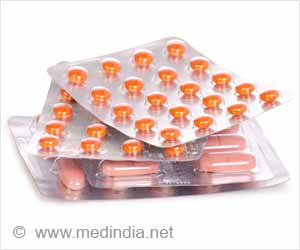An advisory panel of the US FDA has voted for black box warnings on paracetamol combinations.
An advisory panel for the US FDA has voted for black box warnings on paracetamol combinations.
Popular pain relief drug paracetamol, known in the US as acetaminophen and sold as over the counter medication, is found to be a leading cause of liver failure.The Food and Drug Administration panel of outside experts said the agency should take steps to curb the public's exposure to acetaminophen in both over-the-counter and prescription products that include the ingredient.
"I think we have to send the message that there are problems with this medication," Winifred Landis, a pharmacist from Indiana on the panel, told a two-day public meeting to discuss possible FDA action.
Overdoses of acetaminophen, perhaps best known as Johnson & Johnson's (JNJ.N) Tylenol, have long been known to cause liver failure and even death. But FDA officials are concerned current warnings are not heeded by consumers and are looking for new ways to reduce the number of overdoses.
Overall, such painkillers are safe when used as directed and liver damage is rarely seen, the agency said. But acetaminophen is the leading cause of acute liver failure in the 1,600 cases seen each year in the United States, according to a 2007 Centers for Disease Control and Prevention estimate.
Altogether, the committee voted on 10 ways to restrict use of acetaminophen, including reducing the single adult dose and reducing the maximum daily dose of over the counter acetaminophen.
Advertisement
The committee was also in favour of recommending the FDA require drug companies to put a black box warning, the highest there is, on labels of prescription drugs that contain acetaminophen combination products.
Advertisement
The FDA said there is no intention to remove the drug from the market altogether, since it plays an important role in treating pain and fever, and the risk of liver injury to people who use the drug in line with the product label instructions is very low.
But the widespread use of products containing the compound means that the number of people taking more than the recommended dose is high enough to be an important public health concern. Taking more than the recommended dose of acetaminophen can cause liver damage, and even liver failure and death.
Some cases of accidental overdose have resulted from people taking more than one product (for instance an over the counter and a prescription product) containing acetaminophen, which takes them over the recommended maximum daily dose of 4 grams a day, or they just inadvertently go over the 4 grams a day.
Among the evidence presented to the committee was a study of data from 22 medical centers throughout the US that showed acetaminophen-related liver injury to be the leading cause of acute liver failure in the US from 1998 to 2003.
The study showed that patients had taken too much acetaminophen either in over the counter drugs, prescription drugs, or a combination of the two. Half of the patients had done so unintentionally, although many cases also resulted from people choosing to overdose.
The FDA said there is not enough information on consumer behaviour to draw reliable conclusions on why overdoses occur, but among the factors considered by the committee were:
Symptoms of liver damage can take several days to develop and can be hard to recognize (they may be non-specific and feel like flu).
While most scientists agree that taking large amounts of acetaminophen over a short period definitely causes liver injury, they disagree about the level at which it becomes toxic.
Once the liver damage has progressed too far, the antidote for acetaminophen poisoning, N-acetylcysteine, is less effective.
Some people may be especially sensitive to liver injury from acetaminophen, such as alcohol users and those with liver disease, and the maximum safe dose may not be the same for every person.
There may be other reasons that some people are more sensitive than others, and more research is needed to understand the effects of genes, nutrition and other factors.
Doctors point out that the medicine if taken in the prescribed dose is the safest analgesic and fever-lowering medication, but in the West ‘paracetamol poisoning’ is happening with the drug being abused, sometimes even intentionally. The drug has been under review as cases of acetaminophen-related liver injury are going up in the US. The risk accentuates if there is a combination of paracetamol with codeine (found in cough and cold medications).
When contacted, a GlaxoSmithKline spokesperson said: “GSK continues to believe that paracetamol medicines are appropriate for OTC, prescription and combination use when taken as directed. As consumer safety is paramount, GSK supports any change that helps or educates our consumers on the safe, effective and appropriate use of medicine”.
GSK owns the two most popular brands of paracetamol — Crocin and Calpol, while others sold in the country include Pacimol, Metacin and Pyrigesic.The drug has been under review as cases of acetaminophen-related liver injury are going up in the US. The risk accentuates if there is a combination of paracetamol with codeine (found in cough and cold medications).
Source-Medindia
GPL







